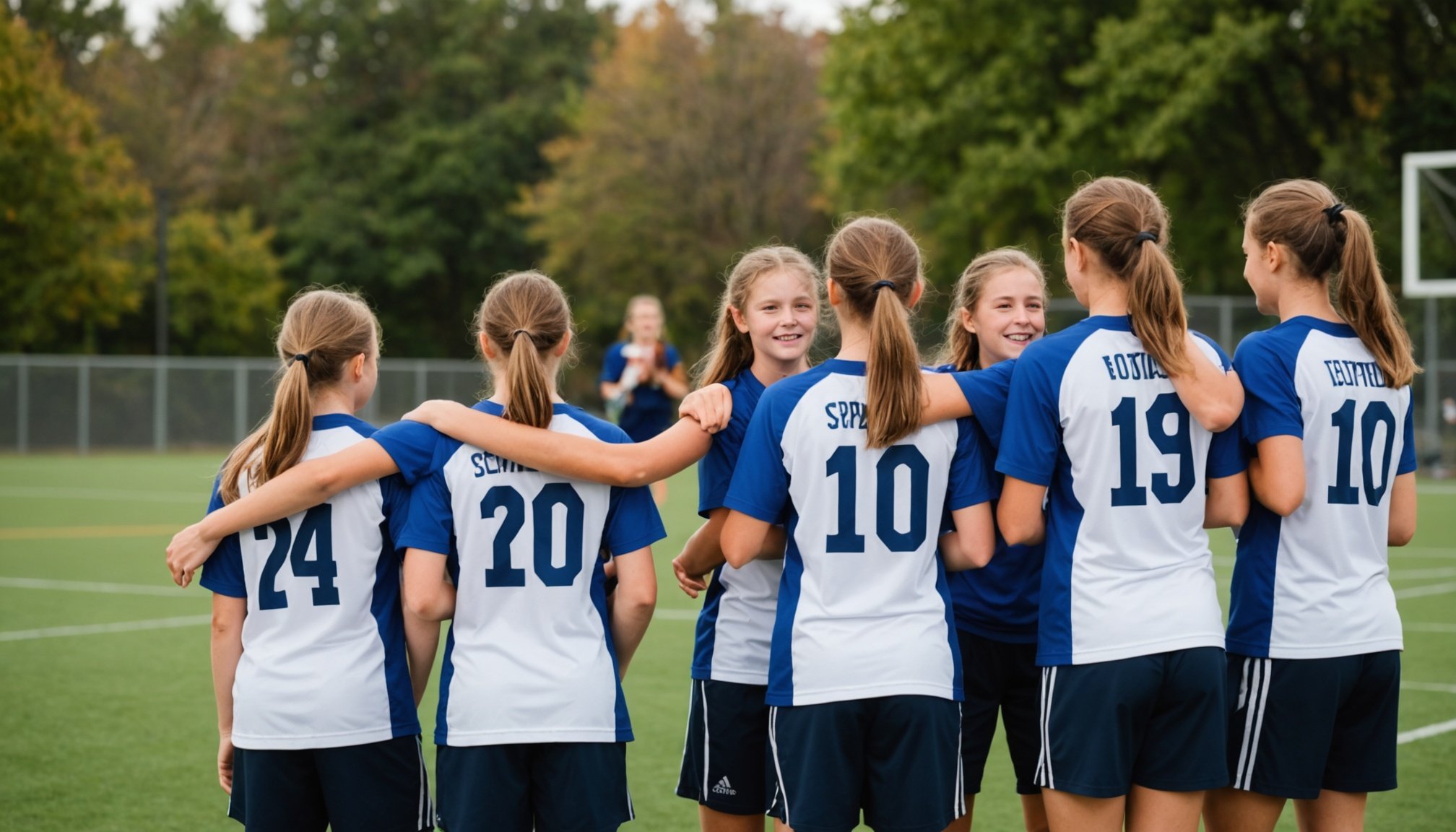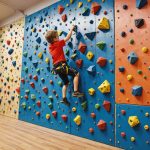The Role of Team Sports in Reducing Social Anxiety
Social anxiety can profoundly impact teens, restraining their willingness to engage in social interactions. This reluctance often leads to limited participation in communal activities, fostering feelings of isolation. However, team sports offer a unique opportunity to combat this pervasive issue. By cultivating an environment where teamwork and communication are essential, these activities serve as avenues for psychological benefits.
Participating in team sports can alleviate social anxiety by creating a supportive environment. Such settings encourage teens to work collaboratively, thus making socialising less daunting. The focus here shifts from individual interaction to team goals, gradually diminishing the fear of judgement.
Also read : Unveiling new research on collagen supplements: boosting joint health for athletes
Researchers have consistently found that engaging in team sports nurtures psychological benefits such as increased self-esteem and resilience. Studies indicate that individuals who participate in such sports report a significant decrease in anxiety symptoms. This outcome likely stems from the structured environment and the camaraderie fostered within the team.
Moreover, by normalising regular interaction through practice and play, teens can improve their social skills and develop long-lasting connections, ultimately making social gatherings more approachable and less intimidating. Through team sports, social anxiety becomes less a barrier and more a stepping stone towards confidence and belonging.
Topic to read : Elevate your endurance: the role of genetic testing in personalizing training strategies for long-distance runners
Personal Stories: Testimonials from Teens
Personal anecdotes from teenagers provide compelling insights into overcoming social anxiety through team sports. By sharing their journeys, teens reveal how participating in sports transforms their social experiences.
Narrative of a Teen Overcoming Social Anxiety
Consider the story of Alex, a teenager who battled with intense social anxiety. Initially hesitant to join the school football team, Alex decided to push past his anxiety. His testimony reveals that the structure and routine of scheduled practices offered a predictable environment, easing his social fears. Over time, he formed friendships that extended beyond the field.
Impact of Team Sports on Confidence Levels
Another inspiring story comes from Mia, who attributes her rising self-confidence to her involvement in basketball. Through team efforts, Mia learned the value of mutual support, which, in turn, bolstered her confidence during public interactions. The regular feedback and encouragement from teammates played a significant role in her gradual transformation.
Testimonials from Coaches and Parents
Coaches and parents frequently observe these changes. Coach Sarah notes, “Teen testimonials highlight a clear pattern; they grow not only as players but as individuals.” Parents express gratitude, noticing their children’s increased willingness to participate in social activities. Such testimonials affirm the psychological benefits of team sports for socially anxious teens.
Expert Opinions on Sports and Mental Health
Expert insights into the connection between team sports and mental health reveal significant psychological benefits. Interviews with psychologists and team coaches highlight that sports psychology broadly supports adding sports to therapeutic practices. These professionals emphasise that regular participation in sports can lead to improved mood, reduced anxiety, and enhanced interpersonal skills.
From a psychologist’s perspective, sports offer a unique combination of physical activity and structured interaction, essential for alleviating social anxiety. It fosters an environment where individuals experience both personal achievement and collective success, important factors in boosting confidence and self-esteem.
Research consistently indicates that mental health benefits derived from team sports are linked to the supportive, team-oriented atmosphere. This nurtures a sense of belonging, helping teens combat feelings of isolation common in social anxiety disorders. Experts recommend incorporating team sports into therapeutic regimens, as it blends physical exercise with crucial social interaction.
Sports psychology suggests a holistic approach, where team sports are an integral part of broader mental wellness strategies. Professionals endorse tailoring sports programmes to individual needs, creating pathways for gradual improvement in both mental health and social engagement. This reflects a growing consensus that involving teens in team sports significantly contributes to their overall psychological resilience.
Research Findings on Sports and Social Skills Development
Research highlights the profound benefits of sports participation in improving social skills, particularly for teens. Research studies consistently link these activities to enhanced social interaction. Statistically, participation in team sports has shown a significant reduction in anxiety, with many teens displaying improved confidence and peer relationships.
Key studies reveal that structured sports environments foster teamwork, discipline, and communication—skills crucial for social interaction. One study showed that teens engaged in sports reported a 20% increase in self-esteem and social connectivity. Such environments also allow teens to practice social skills in an encouraging setting, free from the pressure of formal social contexts.
Moreover, empirical analysis of team dynamics confirms that sports involvement nurtures a sense of belonging, a vital component in diminishing social anxiety. Researchers found that the camaraderie and shared goals inherent in team sports translate into real-world social benefits. Participants often develop better empathy, cooperation, and conflict resolution skills through active engagement with teammates.
In essence, suggesting teens struggling with social anxiety engage in team sports not only supports their physical health but significantly enhances their social interaction abilities, contributing to overall psychological wellness.
Practical Strategies for Parents and Coaches
Navigating the path to encouraging teens to embrace team sports requires thoughtful strategies for parents and coaches. To foster a supportive environment, it’s crucial to consider approaches that make sports not just an activity but a positive experience.
Creating Interest: Parents and coaches should initiate conversations with teens to identify sports that pique their interest, ensuring the activity aligns with their preferences. Highlighting the psychological benefits of team sports can be a wonderful motivator.
Setting Goals: Establish attainable, realistic goals to build confidence. By focusing on personal achievements within the team context, parents and coaches can aid teens in overcoming social anxiety.
Coaching Tips: Foster inclusive environments where teens feel comfortable expressing themselves. Encourage participation in small group activities initially to alleviate anxiety, gradually transitioning to larger settings.
Feedback & Encouragement: Offering regular praise and constructive feedback reinforces a teen’s role within the team, boosting both performance and social engagement.
Building Social Skills: Coaches can implement exercises promoting communication and cooperation. Parents can support these efforts by encouraging social interactions outside scheduled practices.
These methods create an empowering sports experience, facilitating social skills development and helping teens build lifelong, valuable connections.
Integrating Team Sports into the Lives of Anxious Teens
Engaging anxious teens in team sports requires thoughtful integration strategies that enhance social skills development. Identifying the right sport is paramount to ensure fitting engagement. It should suit a teen’s preferences and psychological needs, promoting enthusiasm and comfort. Discuss with your teen to uncover interests and encourage trials of different sports, ensuring the experience is encouraging and exploratory.
Finding the Right Sport for Your Teen
Not every sport will suit each teen, so consider options that align with their comfort levels and interests. Team sports such as basketball, volleyball, or soccer often offer dynamic interactions and camaraderie, which can ease anxiety. A sport should not only meet skill levels but also foster a sense of belonging.
Building a Routine Around Sports Participation
Once a sport is selected, establishing a consistent routine is vital. Regular practice and games provide predictable environments which can reduce social anxiety by creating familiarity. This stability allows teens to build confidence as they consistently engage with peers, facilitating social skills development.
Encouraging Team Spirit and Collaboration
Fostering a supportive team atmosphere is essential. Encouraging active participation and emphasising team accomplishments over individual achievements can cultivate a sense of unity. This emphasis on collaboration and shared goals enhances interaction, making sports an enjoyable social avenue for teens.








